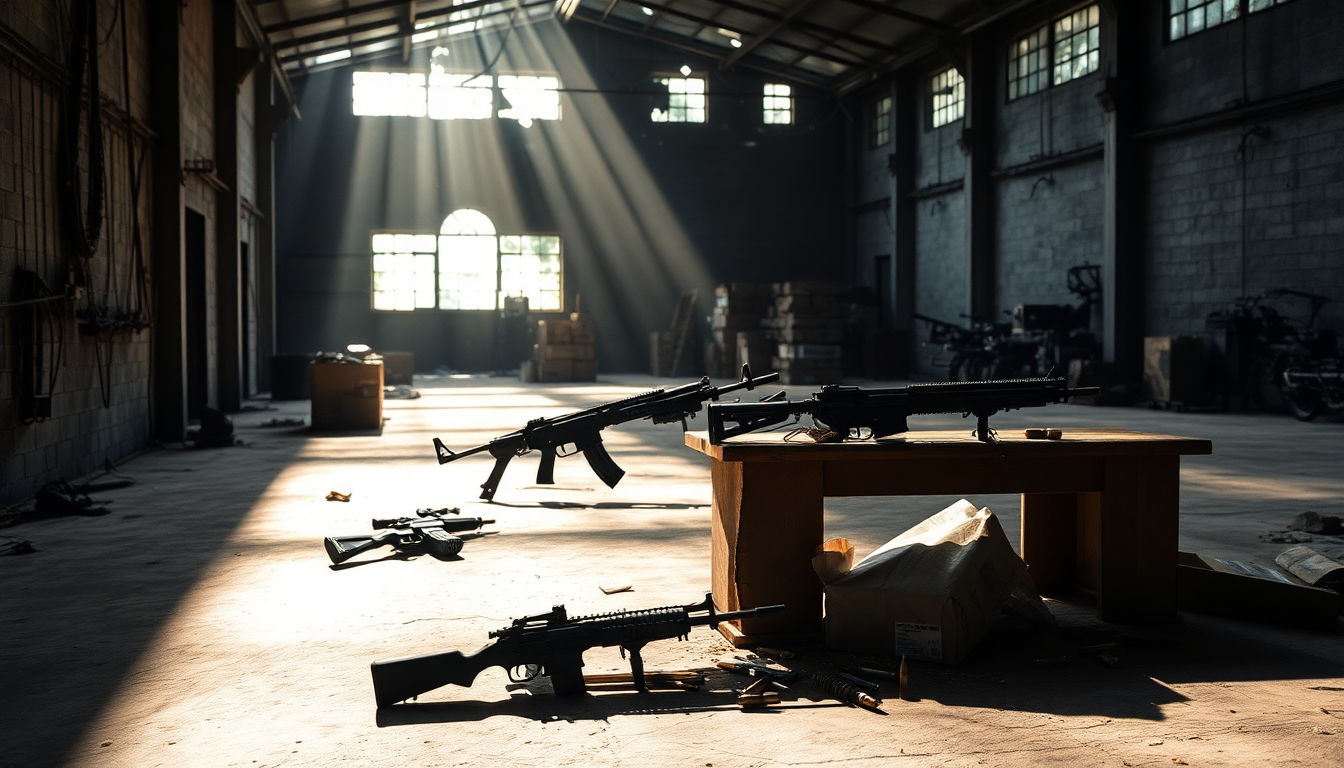Table of Contents
The global landscape of arms trafficking is increasingly alarming for both national and international authorities. Recently, reports surfaced about the arrest of an individual in Mexico with alleged ties to the CIA, prompting us to wonder: What does this mean for the intersection of government agencies and the illegal arms trade? Such incidents not only pique our curiosity but also call for a deeper dive into their broader implications for security and governance.
The Arrest and Its Implications
Mexican authorities recently detained an American national supposedly connected to a human smuggling hub. This individual was found with an arsenal that included multiple firearms, tactical gear, and ammunition. It’s a stark reminder of the ongoing threat posed by the illegal arms trade, which has been on the rise, especially in areas dominated by crime syndicates. The individual’s credentials, reportedly displaying the ‘CIA’ designation, add another layer of complexity to this narrative. Could this suggest a troubling overlap between government representation and criminal activities?
The arrest didn’t just involve a stash of weapons; it also included tactical materials potentially usable in organized crime. Authorities shared images of the seized arsenal, which featured rifles, handguns, and tactical vests, highlighting the operation’s scale. This situation raises urgent questions about the extent of illicit activities that connect state representatives to criminal organizations. How deep does this rabbit hole go?
In light of this arrest, the U.S. State Department issued a statement acknowledging their awareness of the situation. They reaffirmed their commitment to ensuring the safety of American citizens abroad. This response underscores a vital aspect of international relations—how one person’s actions can ripple out, straining diplomatic ties and influencing broader security policies.
The Broader Context of Arms Trafficking
Arms trafficking is a multifaceted issue that intertwines with various global challenges, including human trafficking, drug smuggling, and organized crime. As criminal networks evolve, they adapt their methods, often leading to partnerships that blur the lines between what’s legal and illegal. The recent arrest in Mexico serves as a stark reminder of the vulnerabilities that persist within international security frameworks. Are we doing enough to combat these threats?
The connection between arms trafficking and political instability is equally troubling. In regions with weak governance, the influx of illegal arms can worsen violence and conflict, creating environments where crime thrives. This reality highlights the urgent need for comprehensive strategies that address not just the symptoms of arms trafficking but also its root causes—like poverty, corruption, and lack of education. What can be done to break this cycle?
To tackle these challenges, governments and international organizations must enhance collaborative efforts against arms smuggling. This means sharing intelligence, bolstering border security, and implementing stricter controls on the sale and distribution of weapons. By adopting a proactive approach, the global community can mitigate the risks associated with the illicit arms trade and protect both national and international security.
Looking Ahead: Strategies for Prevention and Enforcement
As the landscape of arms trafficking evolves, so too must our strategies to counteract it. Strengthening cooperation between nations is crucial, particularly when it comes to sharing intelligence about potential threats and criminal networks. This collaboration can be supported through international treaties and agreements that prioritize accountability and transparency in arms dealings. Are we ready to commit to such partnerships?
Moreover, raising public awareness about the implications of arms trafficking is vital. Educating citizens on the risks associated with illegal arms can foster greater community involvement and support for law enforcement efforts. Public campaigns can also help dismantle the stigma surrounding trafficking victims, encouraging individuals to report suspicious activities without fear. What role can each of us play in this fight?
In conclusion, the recent arrest of an individual with alleged CIA connections in Mexico sheds light on the intricate nature of the illegal arms trade and its ramifications for global security. By understanding the nuances of this issue, we can better equip ourselves to tackle the challenges it presents, paving the way for a more secure future for everyone.


